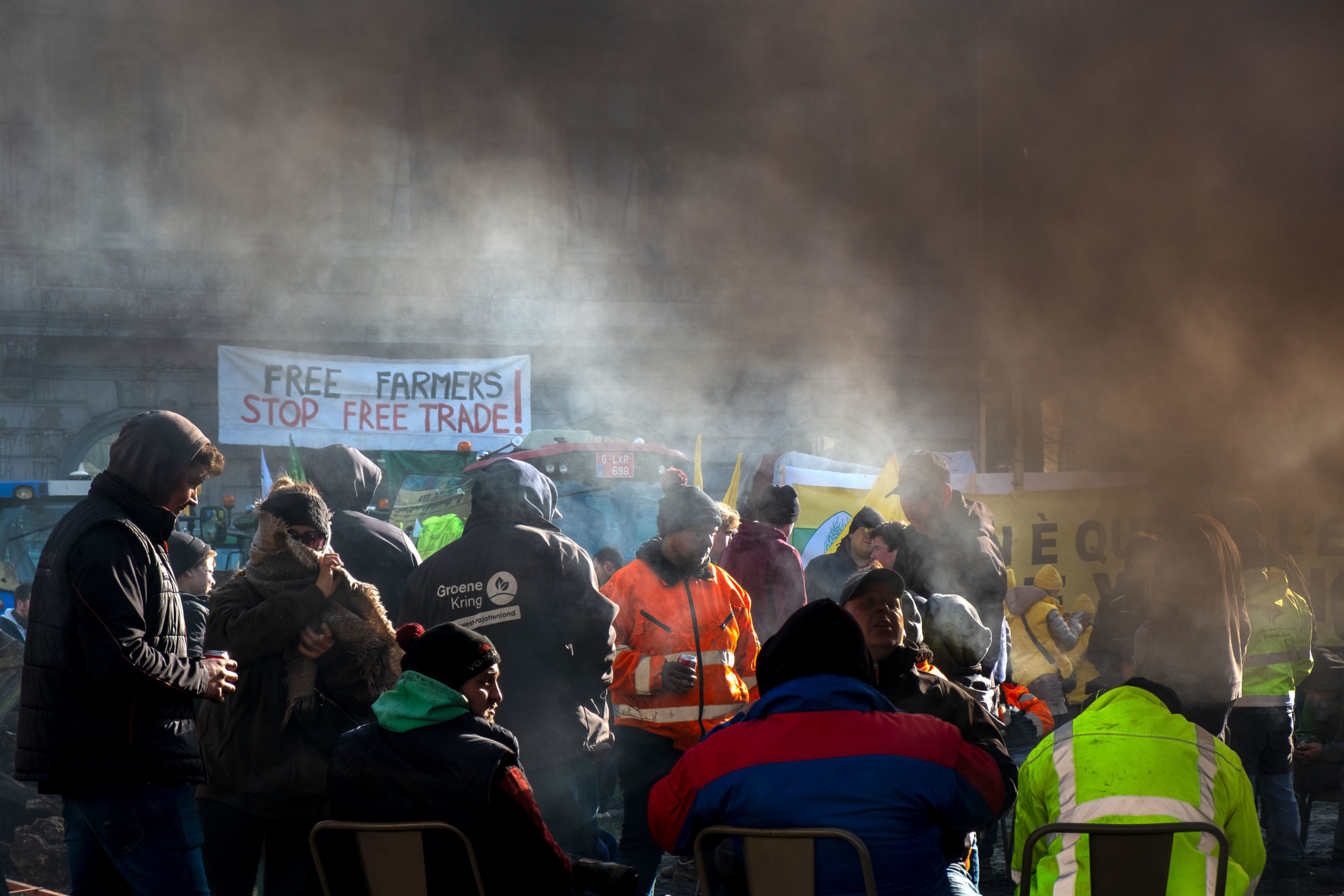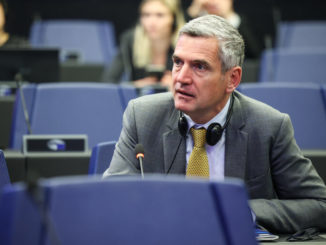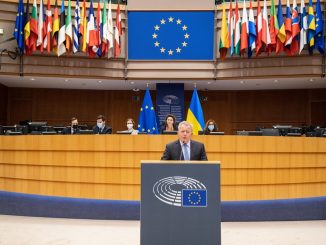
Farmers’ protests continue unabated across the bloc on the back of growing calls for the resignation of the EU’s Agriculture Commissioner. Meanwhile, a new report paints a stark picture of the failures of the Farm to Fork strategy, and Belgium has weighed in on the thorny issue of reciprocal standards in the Mercosur trade deal. Natasha Foote brings you up to speed in the latest goings on in the EU agrifood sector.
Farm to Facts
Most of what was proposed in the EU’s farm to fork strategy has come to nothing. According to a new assessment, published by the European Parliamentary Research Service this week, paints a stark picture of the legacy – of lack thereof – of the EU’s flagship food policy, the Farm to Fork strategy.
read/download the European Parliament’s “EU farm to fork strategy: State of Play February 2024
With vanishingly few months left of this legislative term, the report took stock of the status of the various initiatives put forward under the strategy, which formed an essential pillar of the Green Deal, billed at the time as Europe’s “man on the moon moment”.
In her State of the Union speech back in September, the Commission President stated her team had delivered over 90% of the proposals presented when she became Commission chief in 2019. Meanwhile, a cursory glance at the Commission’s timeline of Farm to Fork actions shows a sea of ticks next to its list of initiatives.
Read/download Timeline of farm to Fork Actions (European Commission)
However, a different picture emerges from the new assessment, published by the European Parliament, which showed the majority of promised initiatives have died off somewhere along the legislative path.
These include the EU’s pesticide reduction plan, which was recently killed off by Commission President von der Leyen herself, as well as a whole host of initiatives that never saw the light of day. These include other high profile files such as the sustainable food system law, three-quarters of the promised animal welfare package, and also a proposal on front-of-pack labelling.
Even some lower profile files fell through the cracks, including promised revisions of the EU’s promotion policy and the EU school scheme, as well as marketing standards for fish and seafood and an overhaul of EU food contact material laws.
However, a few proposals did survive the rocky road of the past few years. A contingency plan to ensure food supply and food security in times of crisis and the infamous NGT /New GMOs file are both still live.
Likewise with the EU code of conduct – a voluntary code for responsible food business and marketing practices – survives. New rules on the marketing of biocontrol and on the collection of data on sustainable farming practices are also listed among the strategy’s successes.
Instead, the report points out that the debate on the sustainability of the EU’s farming and food system is now shifting to the strategic dialogue on the future of EU agriculture, launched by the Commission in January 2024.
The outcome of the multi-stakeholder talks are intended to feed into the future direction of agrifood policy and the farming sector, including the future shape of the next reform of the Common Agricultural Policy (CAP).
No Mirror Clauses? No Mercosur, says Belgium
“There will be no support from Belgium for a text without mirror clauses”. That’s according to Belgium’s deputy prime minister and the federal minister for agriculture David Clarinval.
Clarnival, responding to questions during a meeting of agriculture MEPs, was “very clear” that his government will not support a Mercosur trade agreement without mirror clauses.
‘Mirror clauses’ is the idea that any imports of agri-food products must mirror all EU production standards. These can include, as examples, wage rates, environmental regulations, climate and animal welfare rules, or rules related to pesticides and herbicides.
This is a key demand from the EU farming and indeed environmental and social justice sectors. Fear of being undercut by agrifood imports is a key factor driving the anger we have seen spilled on the streets in the past few weeks ,from farmers and farming organisations of varying hues.
However, it is illegal under international trade rules to ban imports from another country on the basis of different production methods where this does not affect the final product.
“You can’t just ban a product because of the way it was produced,” top trade expert John Clarke, who worked at DG AGRI for the past 30 years before retirement, noted during a recent interview with specialist trade policy outlet Borderlex this week.
He added that the “protectionist” dimension is the most concerning from a trade perspective. “Every time I hear producer groups in Europe saying we need a level playing field in the face of cheaper imports, that is the cue for protectionism,” he warned.
The Rogue Commissioner
The news that references to reduction targets for the agrifood sector in the Commission’s 2040 climate targets were dropped between the circulated drafts and the final presentation sparked concern last week from green groups – and, according to EU Agriculture Commissioner Janusz Wojciechowski, he is the one responsible for the change.
Commenting on an article on X, the Commissioner confirmed that the targets were removed from the final text and added that this “positive decision for farmers was made at my request”.
His comments sparked the ire of green groups, who lambasted the move as a step in the wrong direction. Meanwhile, speaking during a meeting of agriculture MEPs this week, Chair of the EU Scientific Advisory Board on Climate Change, Ottmar Edenhofer, stressed the need to talk about agriculture” in reaching the EU’s 2040 climate goals, setting out the need to reform the Common Agricultural Policy CAP to shift support from livestock production to lower-emission activities.
However, the move also fell short of winning over farmers, a growing number of which are calling for the Commissioner’s resignation.
“Janusz Wojciechowski will be remembered as the worst EU Agriculture Commissioner for his ineffectiveness”, Spanish agricultural association ASAJA Brussels told ARC, lambasting the Commissioner for Agriculture for his “passive management and his negligence in defending European farmers during these five years” and calling for him to step down from his post.
The move comes on the back of similar calls from Wojciechowski’s home country of Poland, where a month-long general strike is now underway in protest against EU policies.
As reported by Politico, Jarosław Kaczyński, leader of the opposition Law and Justice (PiS) party has also called on the Commissioner to “terminate his mission”, while support for the Commissioner among Polish farmers remains spotty.
However, Wojciechowski has rejected such calls, denying that there has been negligence on his part. Meanwhile, a Commission spokesperson told ARC that President von der Leyen “has full confidence in her team”.
Protests Continue Unabated
Meanwhile, the farmers’ protests that have been dominating both headlines and the political agenda in the past few weeks show now sign of cooling down any time soon.
Agricultural organisations in Central and Eastern European countries met in Poland on Tuesday to agree on a new wave of protests, set for 22 February, while operations at the Belgian port of Antwerp, one of Europe’s biggest container ports, were seriously impacted this week as hundreds of farmers on tractors blocked the roads around the port to demand better pay and working conditions.
The blockade of the border between Spain and France is now entering its second week. Meanwhile, on the back of the announcement that French President Emmanuel Macron will open France’s Salon de l’Agriculture on 24 February, French agricultural union FNSEA has promised action at the launch of the event to offer Macron a “warm welcome”.
Moreover, Polish protesters on the border of Ukraine destroyed Ukrainian grain this week, drawing sharp criticism from the war-torn country, who called the move “cynical, unacceptable and immoral”.
Calling for an immediate stop to the actions, the Ukrainian agri council said they were “confident” that the problem has been exacerbated by the political aspect, as Europe is “once again entering the election race”.
“This strike can be stopped if there is political will, but for some reason this is not happening,” they said, heaping on the political pressure for the EU to take action to halt the protests.
More
Parliament greenlights plans to loosen EU rules on new GMOs – but with key conditions
Pesticides, Food Systems, GM-nOs, GHGs… what to watch in Brussels and Strasbourg this week
Commission to scrap EU pesticide reduction plan amid presSURe from farmers
Under Pressure Commission Grants CAP Derogation, Extends Ukraine Import Liberalisation
EU Fails to Deliver on Food System Transformation in Face of Environmental Collapse
Echoes of Discontent: Understanding the European Farmers’ Protests
Farm to Forms – the Epicness of Trying to Establish and Run a Farm in France
‘Established democratic parties ignored problems of farmers for far too long’
Part 2 EU-Mercosur Trade Deal | A Road to Nowhere for Farmers?
Brussels | Farmers, Environmentalists tackle EU-Mercosur Deal






